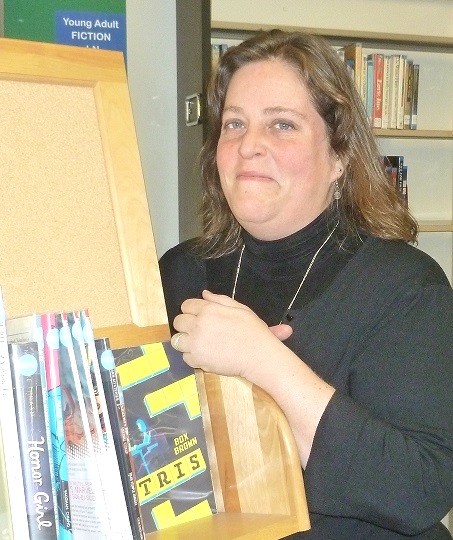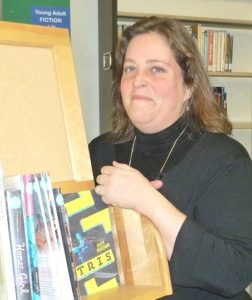This is part of a series of Session Notes from grantees who have received Professional Development grants from the Office of Commonwealth Libraries. Each grantee will share their professional development experience and include tips and other resources from the workshop or class. Grantees had their choice of an article for the Compendium, a webinar or a podcast. This project was made possible by the Institute of Museum and Library Services.
As a newly minted teen librarian, I was grateful to have the opportunity to attend my first YALSA Symposium in November in Pittsburgh. The presentations I attended gave me great insight into programs to plan and potential pitfalls I might encounter. It was amazing to connect with other teen librarians and learn from their insights and experience, as well as hear from some of our teens’ favorite authors.
I attended numerous sessions and thanks to resources like Slideshare and Twitter, I was able to learn from other presenters I didn’t get to see live. In addition to the focus on advocacy, programming and innovation for teens, presenters wove useful information about current trends in technology, education and community building throughout, and this was extremely helpful as we could also extrapolate many of those ideas to working with a variety of patrons.
One of the sessions I found to be most helpful was called Fast Track: Introducing Teens to Non-Traditional Career Paths, with presenter Amy Wyckoff. Our library is located in Western Pennsylvania in a town known for its industry (primarily steel making and coal mines), and many of our teen patrons consider non-traditional career paths when thinking about life after high school. The session was an excellent road map for how to provide information and assistance in pursuing these paths. The presenters set up an I Can Career Program Series that brought in professionals working in numerous fields, including culinary and other arts, music, cosmetology, technology, the military, and other areas, and let the students in many cases have some teen-directed, hands-on learning with the adults. The presenters also talked about their experience setting up a career fair, where they invited trade schools, for-profit and non-profit organizations to set up tables and allow the teens to come and ask questions. They offered giveaways, had a raffle, and gave the students about two hours to learn and explore.
Another excellent session featured outreach to schools by public librarians. Presenters Amie Wright, Amy Mikel, Elizabeth Devora, and Christine Poser, who come from the New York and Brooklyn Public Library systems, discussed the importance of “boots on the ground” outreach. Their motto was We have to go out – how else will they come into your library? and that touching base with contacts, and then developing relationships with them, may take much longer than anticipated, so patience is important, and gentle persistence is key.
They stressed the importance of a 30-second “elevator pitch” (and a consistent message) to present to school contacts, so that the contacts are aware exactly how the public library can help the school and its librarians. Other items of importance included identifying stakeholders, planning to attend parent nights, community board meetings, and other events, identifying if a school newsletter exists and if information about the public library’s services can be included in it, and creating an outreach menu of services that concretely demonstrates what the library can do and helps to set expectations for visits.
Access the slides from this presentation
The session entitled Empowering Teens with Books that Reflect Their World, presented by Annette Pollert-Morgan of Source Books Fire and Jessica Powers of Cinco Puntos Press, discussed various ways to make sure that librarians are practicing diverse collection development and reflecting the needs of their teen patrons. They emphasized the importance of knowing one’s community makeup through qualitative and quantitative analysis, and of using a variety of sources, including NetGalley, Edelweiss, authors’ and publishers’ Twitter feeds and Facebook pages, to stay current on what titles are available beyond best seller lists. They reminded us that “we don’t know what we don’t know”, and encouraged us to make books more discoverable through face-out presentation, shelf displays, taking book talks to schools, and most of all, listening to teens and identifying their needs.
Two last takeaways from the conference are quotes: “If you don’t know something, find someone who does,” and “It’s incredible what teens will share if they know you’ll listen and act.” The YALSA Symposium was an excellent mix of practical advice and bedrock principles that I’ll carry with me while doing this work. If you’re a teen librarian who needs to brainstorm additional ideas or resources, please feel free to contact me by email .


